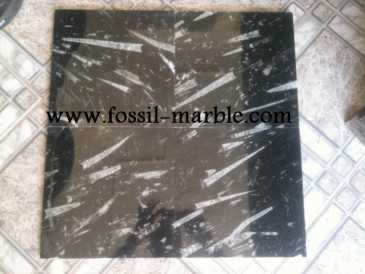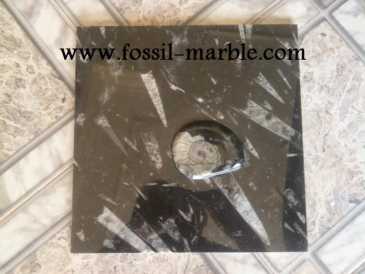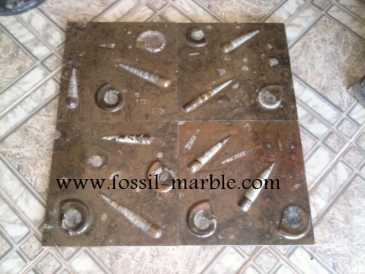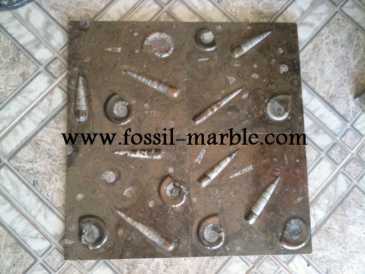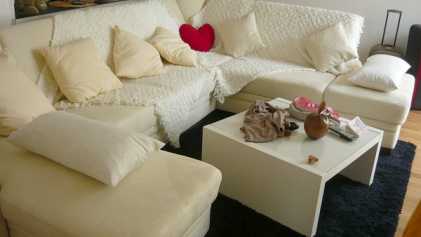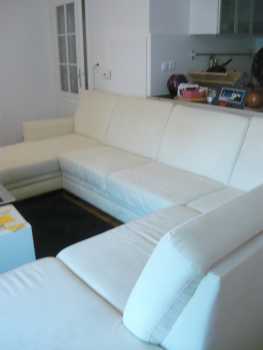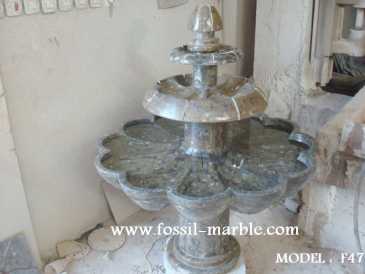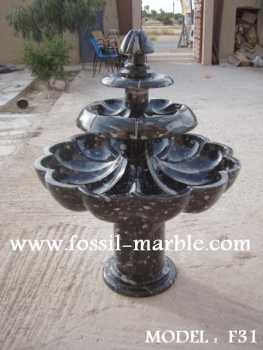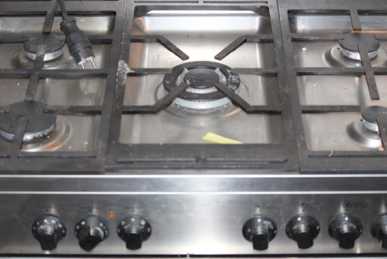|
|
|
|
FRANCE - FURNITURE AND HOUSEHOLD APPLIANCES : Results for "for sale by owner" - Page 15 |
|
|
|
Sells Decoration SLAB FOSSILIZED MARBLE MOROCCO - SLAB FOSSILIZED MARBLE MOROCCO: 100 EUR (106 USD) |
 France - 40 000 - MARRAKECH (40 LANDES) France - 40 000 - MARRAKECH (40 LANDES) | The indicated price is not negotiable |
Sells new Decoration SLAB FOSSILIZED MARBLE MOROCCO SLAB FOSSILIZED MARBLE MOROCCO, 100 EUR (106 USD).
The Origin of Fossilized Stones
Stone Rissani is famous for the fossils contained within it from the Primary Era. It is mined in the Moroccan Sahara near the town of Rissani (from which it derives its name). It is a fossilized marble rock, containing mainly cephalopods, which only appear if the stone is polished. Otherwise the fossil merges with the stone. The rock is very hard; it has a coefficient of zero capillary. The age of the fossils are dated to the Upper Devonian Period (about 360 million years). A majority of the fauna within the rock is made up of goniatites, ammonites, orthoceras, corals, and trilobites. Iron oxide and carbonate deposits give the rock its black color.
Read more...
|
| This classified ad has been seen: 34320 times |
|
|
|
Sells Decoration SLAB FOSSILIZED MARBLE MOROCCO - SLAB FOSSILIZED MARBLE MOROCCO: 100 EUR (106 USD) |
 France - 40 000 - MARRAKECH (01 AIN) France - 40 000 - MARRAKECH (01 AIN) | The indicated price is not negotiable |
Sells new Decoration SLAB FOSSILIZED MARBLE MOROCCO SLAB FOSSILIZED MARBLE MOROCCO, 100 EUR (106 USD).
The Origin of Fossilized Stones
Stone Rissani is famous for the fossils contained within it from the Primary Era. It is mined in the Moroccan Sahara near the town of Rissani (from which it derives its name). It is a fossilized marble rock, containing mainly cephalopods, which only appear if the stone is polished. Otherwise the fossil merges with the stone. The rock is very hard; it has a coefficient of zero capillary. The age of the fossils are dated to the Upper Devonian Period (about 360 million years). A majority of the fauna within the rock is made up of goniatites, ammonites, orthoceras, corals, and trilobites. Iron oxide and carbonate deposits give the rock its black color.
Read more...
|
| This classified ad has been seen: 33875 times |
|
|
|
|
|
|
|
|
|
|
|
|
|
|
|
|
|
|
|
|
|
|
|
|
|
|


